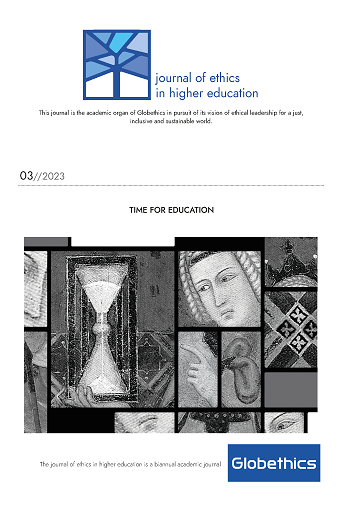McTaggart’s Paradox and Philosophy of Time
DOI:
https://doi.org/10.26034/fr.jehe.2023.4639Keywords:
philosophy of time, McTaggart, unreality of time, presentismAbstract
Asking “What is time?” can be both a simple and a profound question. In this article we intend to introduce the reader to the philosophy of time. To do so, we will deal with McTaggart's paradox. By explaining it and introducing the basic concepts to understand it, we will be able to get an idea of what this branch of philosophy is all about. The main intention of this article is not to explain anything new but to clarify the background of a debate by explaining its roots. By taking a deep dive into the concept of time, we will see that it is not a simple concept at all.
In any subsequent possible definition with regards to concepts such time for education or time for ethics, a logical clarification of what time is important and will color all further predication of the concept of time. Considering the impact of digital transformation in our lives in general, and in education in particular, a philosophy of time brings major elements such as paradoxes, which are not of practical character but important for the semantic of the words, such as “duration”, “temporal position” of events, etc.
Downloads
Published
How to Cite
Issue
Section
License
Copyright (c) 2023 Sergi Tauler

This work is licensed under a Creative Commons Attribution-NonCommercial-ShareAlike 4.0 International License.
Journal articles of Globethics Publications are published under the open Creative Commons License Attribution-NonCommercial-ShareAlike 4.0 International (CC BY-NC-SA 4.0), which guarantees the rights of licensor and allows free use and re-use to the licensees (the readers) who can: 1) Share — copy and redistribute the material in any medium or format 2) Adapt — remix, transform, and build upon the material provided appropriate credit is given and similar license is used in case of such adaptations. Content should not be used for commercial purposes. Each article (the version of record) can be deposited by the author on their academic institutional repository or personal author webpage.







